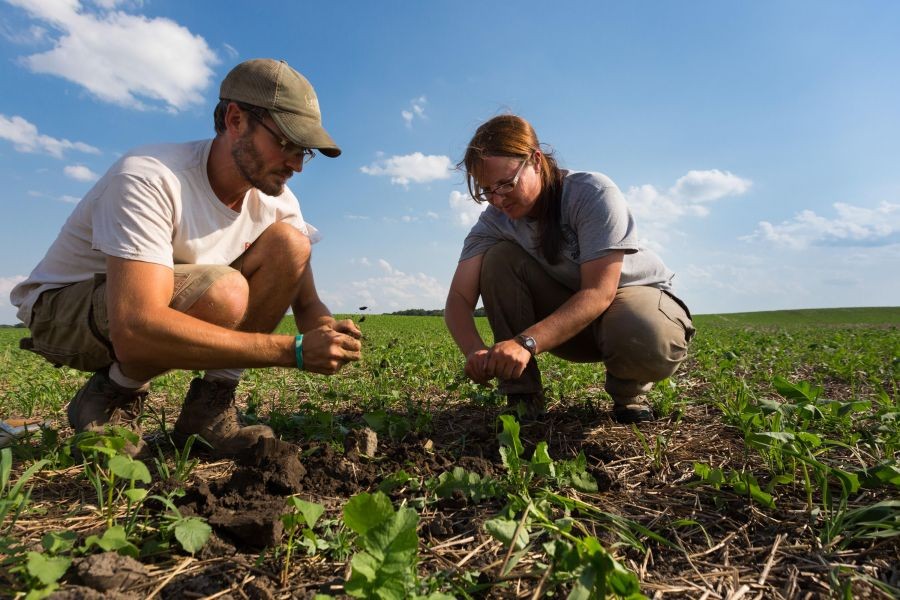New Zealand has long been a pioneer in sustainable agriculture, leveraging its unique environment and innovative approaches to farming. As the global food system faces increased scrutiny for its environmental impact, New Zealand’s practices offer valuable lessons for countries worldwide. In this article, we explore five sustainable farming practices prevalent in New Zealand, providing insights and actionable strategies for innovation consultants.
1. Regenerative Agriculture: A Holistic Approach
Regenerative agriculture focuses on restoring soil health, increasing biodiversity, and enhancing ecosystem services. This approach goes beyond sustainability by aiming to regenerate degraded lands. In New Zealand, farms practicing regenerative agriculture have seen significant improvements in soil quality and biodiversity, leading to more resilient food systems.
How It Works
- Soil Health: Techniques such as cover cropping, reduced tillage, and composting improve soil structure and fertility.
- Biodiversity: Integrating diverse plant and animal species creates a balanced ecosystem.
- Water Management: Practices like rotational grazing and natural water storage reduce erosion and improve water retention.
Pros & Cons Evaluation
Pros: Enhances soil fertility, increases biodiversity, and improves water management. Offers long-term sustainability and productivity.
Cons: Requires initial investment in knowledge and resources. Results can vary based on local conditions.
2. Precision Agriculture: Data-Driven Efficiency
Precision agriculture utilizes technology to optimize farm management practices, ensuring that crops and soils receive exactly what they need for optimal health and productivity. In New Zealand, precision agriculture is supported by robust technological infrastructure and research initiatives.
How It Works
- Technology: Uses GPS, sensors, and data analytics to monitor crop health and soil conditions.
- Efficiency: Reduces waste and input costs by applying water, fertilizers, and pesticides precisely where needed.
- Decision Support: Provides farmers with actionable insights through real-time data.
Pros & Cons Evaluation
Pros: Increases efficiency and productivity, reduces environmental impact, and optimizes resource use.
Cons: High initial costs for technology implementation. Requires technical expertise and ongoing data management.
3. Agroforestry: Integrating Trees and Crops
Agroforestry involves integrating trees and shrubs into agricultural landscapes, creating a more diverse and productive ecosystem. This practice is gaining traction in New Zealand for its ability to enhance biodiversity and improve land resilience.
How It Works
- Integration: Combines forestry with agricultural crops and/or livestock.
- Ecosystem Benefits: Provides habitat for wildlife, improves soil structure, and enhances water cycling.
- Economic Diversification: Offers additional income streams through timber, fruits, or nuts.
Pros & Cons Evaluation
Pros: Improves biodiversity, enhances resilience to climate change, and provides economic diversification.
Cons: Requires careful planning and design. Long-term commitment to manage tree growth.
4. Organic Farming: Sustainable Practices Without Synthetic Inputs
Organic farming in New Zealand is characterized by the avoidance of synthetic fertilizers and pesticides, focusing instead on natural processes. This method supports biodiversity and improves soil health, aligning with consumer demand for clean and green products.
How It Works
- Natural Inputs: Utilizes organic fertilizers and pest control methods.
- Biodiversity: Encourages the use of crop rotations and polycultures.
- Certification: Follows strict guidelines to maintain organic certification.
Pros & Cons Evaluation
Pros: Reduces chemical use, enhances biodiversity, and meets consumer demand for organic products.
Cons: Lower yields compared to conventional farming. Requires strict adherence to certification standards.
5. Controlled Environment Agriculture: Optimizing Growth Conditions
Controlled Environment Agriculture (CEA) involves growing crops in controlled conditions, such as greenhouses or vertical farms. This practice maximizes resource efficiency and is becoming increasingly popular in urban areas of New Zealand.
How It Works
- Environment Control: Regulates temperature, humidity, and light to optimize plant growth.
- Resource Efficiency: Uses hydroponics or aquaponics to minimize water and nutrient use.
- Urban Integration: Allows for food production close to population centers.
Pros & Cons Evaluation
Pros: Maximizes resource efficiency, enables year-round production, and reduces transportation emissions.
Cons: High initial setup and operational costs. Requires technical knowledge and energy inputs.
Case Study: New Zealand's Pioneering Farms
Problem: New Zealand's agriculture sector faced challenges in maintaining productivity while reducing environmental impacts.
Action: Farms adopted sustainable practices like regenerative agriculture and precision farming, supported by government incentives and research partnerships.
Result: Significant improvements in soil health and biodiversity were reported, with a 30% increase in productivity (Source: MBIE).
Takeaway: New Zealand's approach demonstrates the feasibility and benefits of integrating sustainable practices in agriculture. Innovation consultants can draw from these insights to advise clients globally.
Myths & Misconceptions
- Myth: Sustainable farming is not economically viable.
- Reality: Many New Zealand farms have reported increased profitability through sustainable practices (Source: Stats NZ).
- Myth: Organic farming can't feed the world.
- Reality: With the right techniques, organic farming can achieve comparable yields to conventional methods.
Future Trends & Predictions
As global demand for sustainable food systems grows, New Zealand is likely to continue leading in agricultural innovation. By 2030, it is predicted that sustainable practices will be adopted by over 70% of New Zealand farms, driven by consumer preferences and environmental policies (Source: Deloitte Agricultural Outlook).
Conclusion
New Zealand's sustainable farming practices offer a blueprint for other countries seeking to balance productivity with environmental stewardship. By adopting these practices, farms can enhance resilience and profitability while supporting global sustainability goals. As an innovation consultant, leveraging these insights can provide a strategic advantage in advising clients on sustainable transitions.
People Also Ask
- How does sustainable farming impact New Zealand's economy? Sustainable farming practices have boosted productivity and environmental resilience, leading to a 30% increase in farm profitability (Source: MBIE).
- What are the benefits of regenerative agriculture? Regenerative agriculture improves soil health, increases biodiversity, and enhances water management, leading to more resilient food systems.
Related Search Queries
- Sustainable farming practices in NZ
- Regenerative agriculture success stories
- Precision agriculture technology
- Agroforestry benefits and challenges
- Organic farming certification in New Zealand
- Controlled Environment Agriculture innovations
- NZ agriculture policies and incentives































